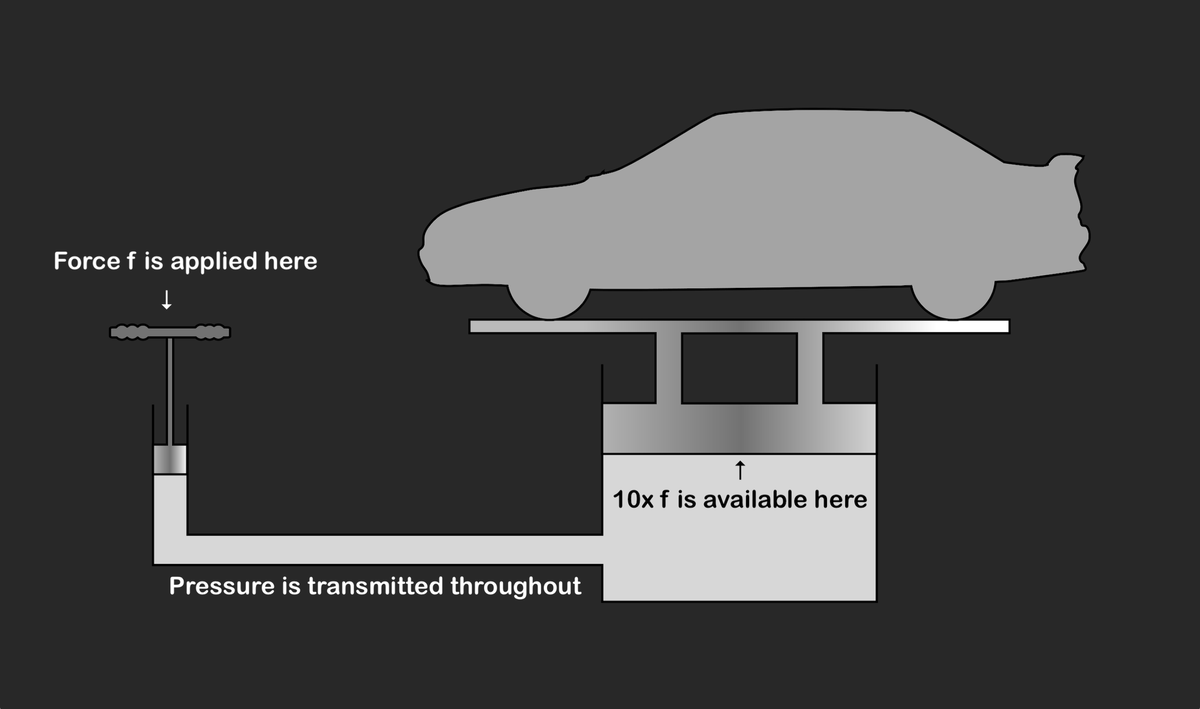



Hydraulic systems, based on Pascal’s law, use incompressible fluid to transmit force, enabling smooth, high-power applications like cranes and excavators. Key components include pumps, valves, actuators, and tanks. With advantages like precision and heat dissipation, hydraulics dominate in agriculture, automation, and more, despite ongoing efforts to improve energy efficiency.

Copyright infringement not intended
Picture Courtesy: THE HINDU
Hydraulic systems use fluid pressure to power machinery across industries, from cranes to aircraft.
The operation of every hydraulic system is based on a fundamental principle of physics known as Pascal's Law.
Pascal Law formulated by the 17th-century French scientist Blaise Pascal, the law states that pressure applied to a confined, incompressible fluid is transmitted equally and undiminished in all directions throughout the fluid.
This principle is the key to how hydraulics achieve their power. Since pressure is defined as force per unit area (P = F/A), a small force applied to a small area can generate immense pressure. When this same pressure acts on a larger area, it produces a much larger output force.
 Advantages of Hydraulic Systems
Advantages of Hydraulic Systems
Hydraulic systems can generate enormous force from relatively small and lightweight components.
They offer smooth, variable, and precisely controlled motion (speed, force, and direction).
With fewer moving parts compared to complex gear systems, hydraulics have long service lives.
Pressure relief valves can be easily integrated to protect the system from being overloaded.
Construction => Excavators, bulldozers, cranes, and loaders rely entirely on hydraulics for digging, lifting, and moving heavy materials.
Aerospace and Defence => Aircraft use hydraulic systems for critical functions like operating landing gear, flaps, rudders, and brakes.
Automotive Industry => Vehicle braking systems, power steering, and shock absorbers are common hydraulic applications.
Industrial Manufacturing => Hydraulic presses are used for stamping, forging, and molding metal and plastic parts.
Agriculture => Tractors and other farm machinery use hydraulics to lift and control implements like plows and harvesters.
Waste Management => Garbage trucks use hydraulics to power their compactor mechanisms and lifting arms.
Source:
|
PRACTICE QUESTION Q. What fundamental principle governs the operation of hydraulic systems? A) Bernoulli's Principle B) Pascal's Law C) Archimedes' Principle D) Boyle's Law Answer: B Explanation: Pascal's Law is the fundamental principle behind hydraulic systems. It states that a pressure change applied to an enclosed, incompressible fluid is transmitted undiminished to every portion of the fluid and to the walls of the containing vessel. In a hydraulic system, this means that a small force applied to a small area creates a pressure that, when applied to a larger area, generates a much larger force. |






© 2026 iasgyan. All right reserved